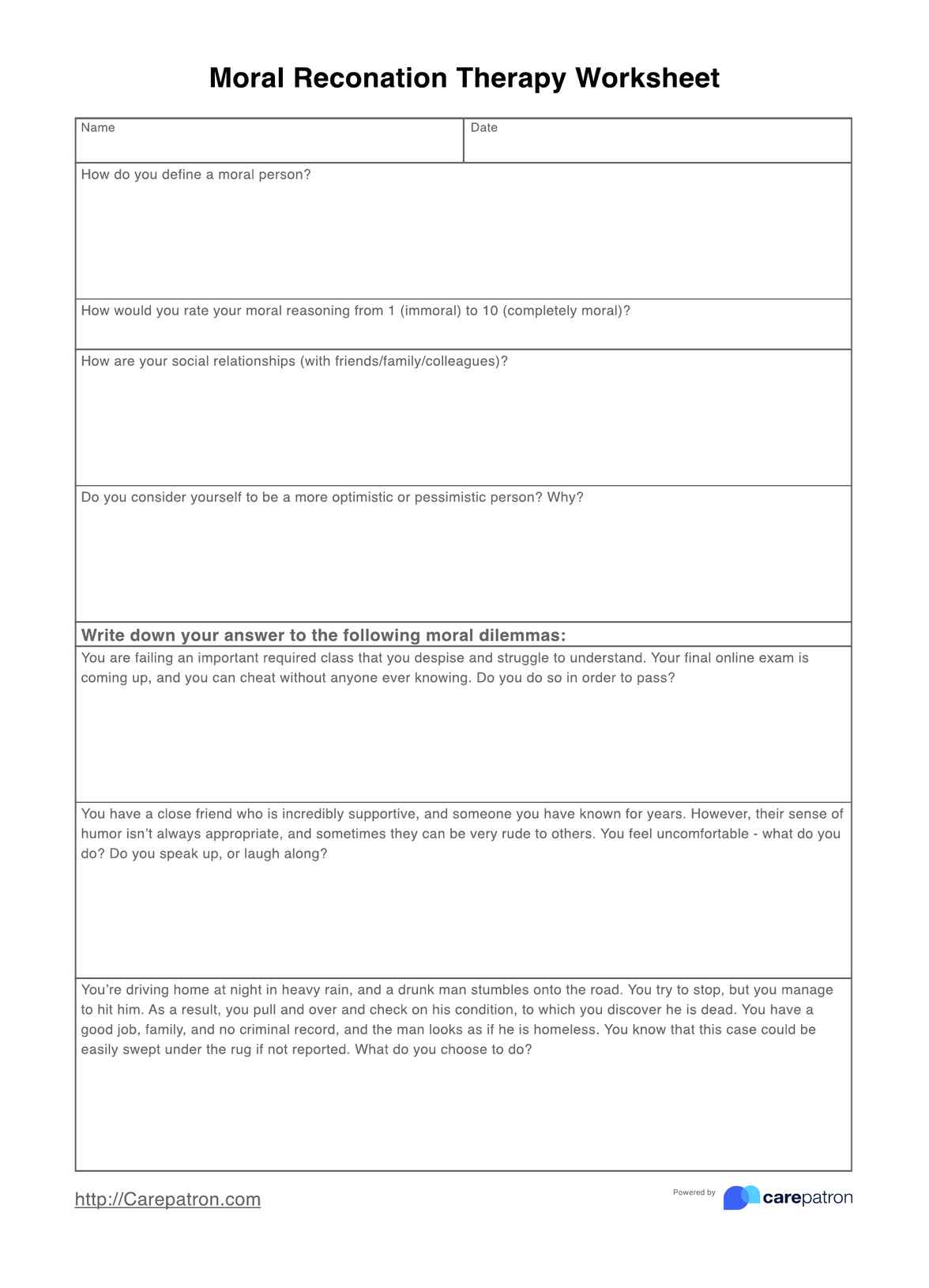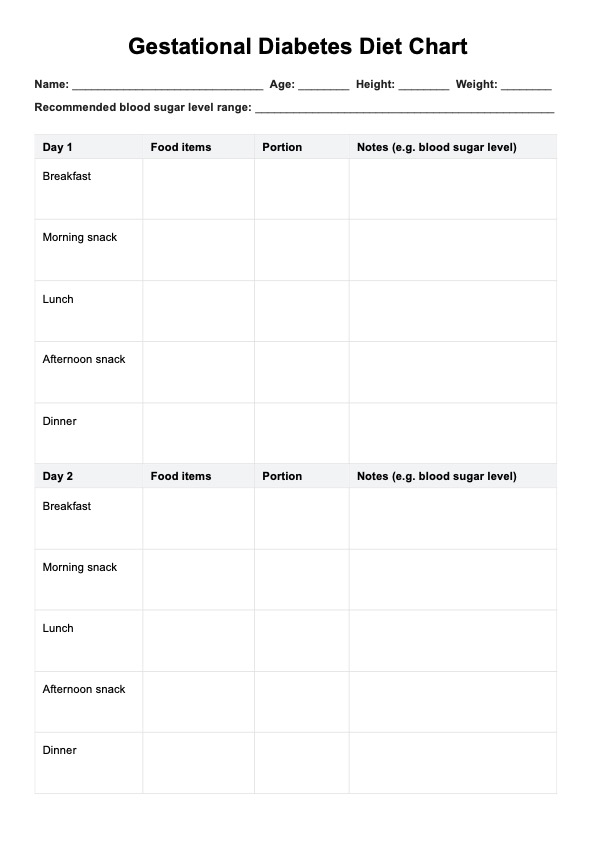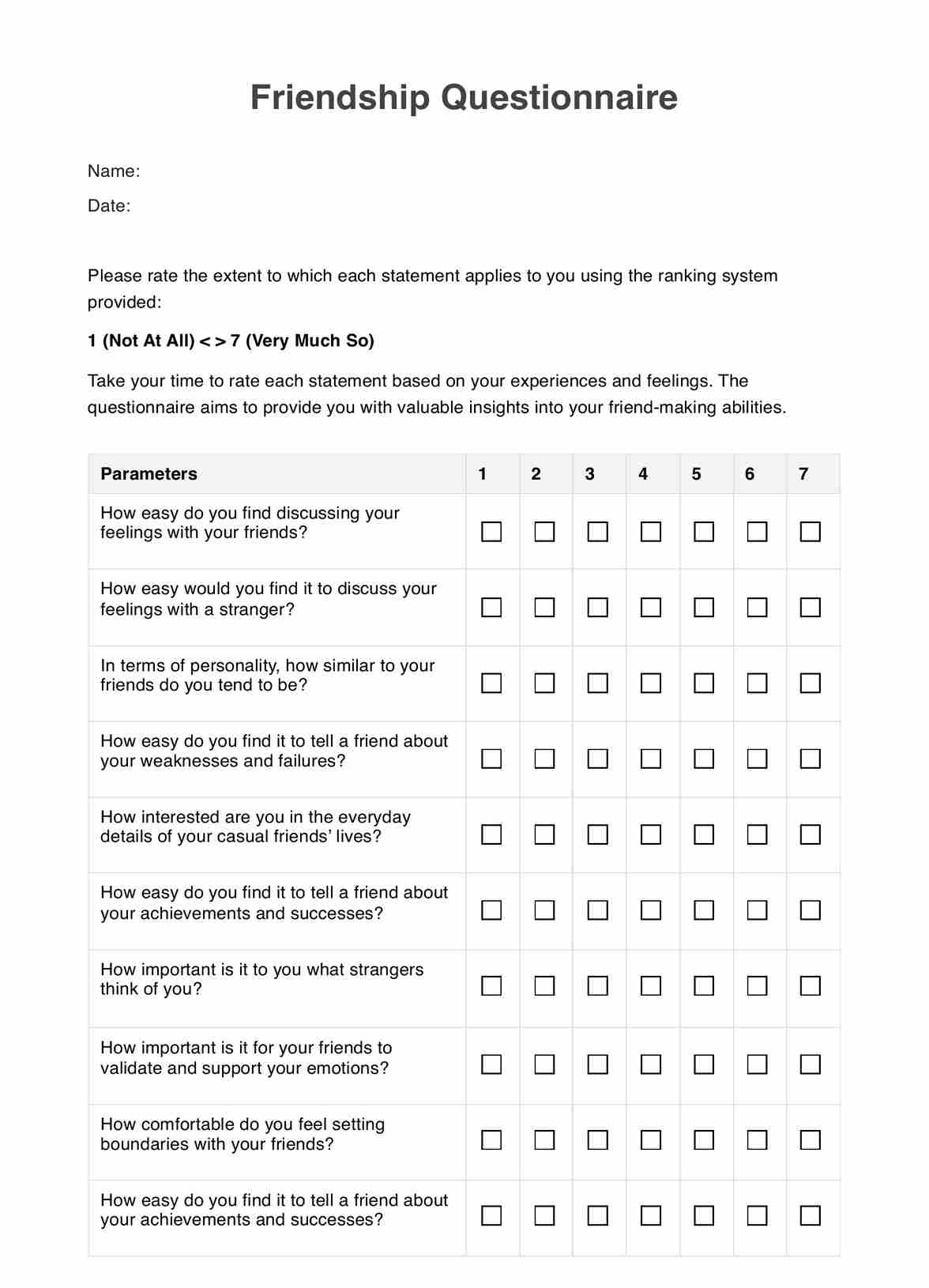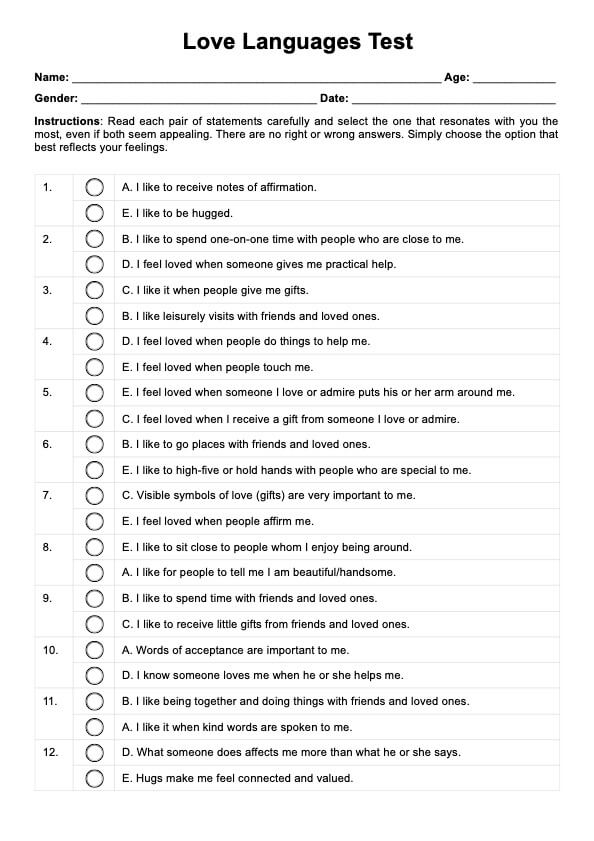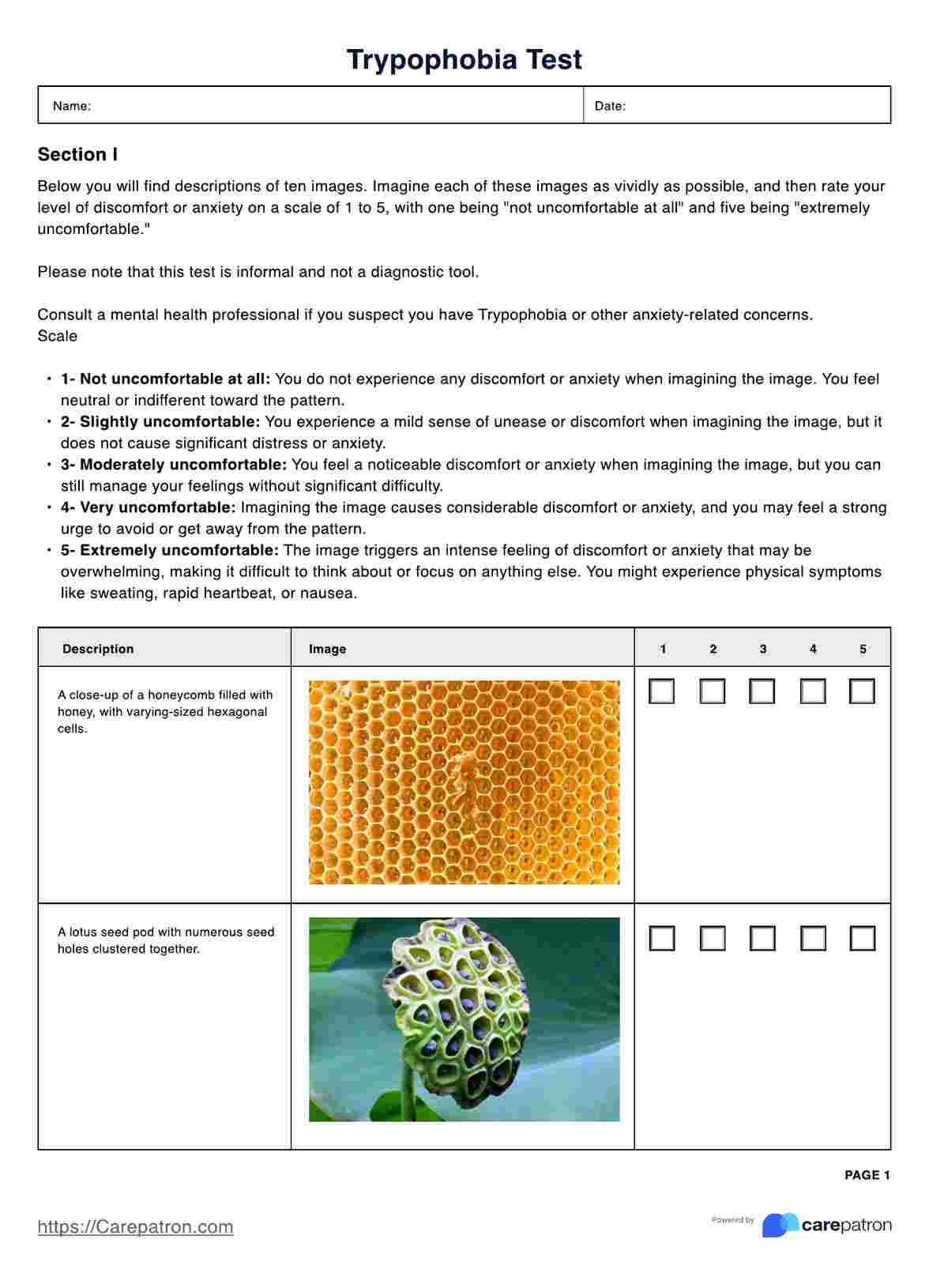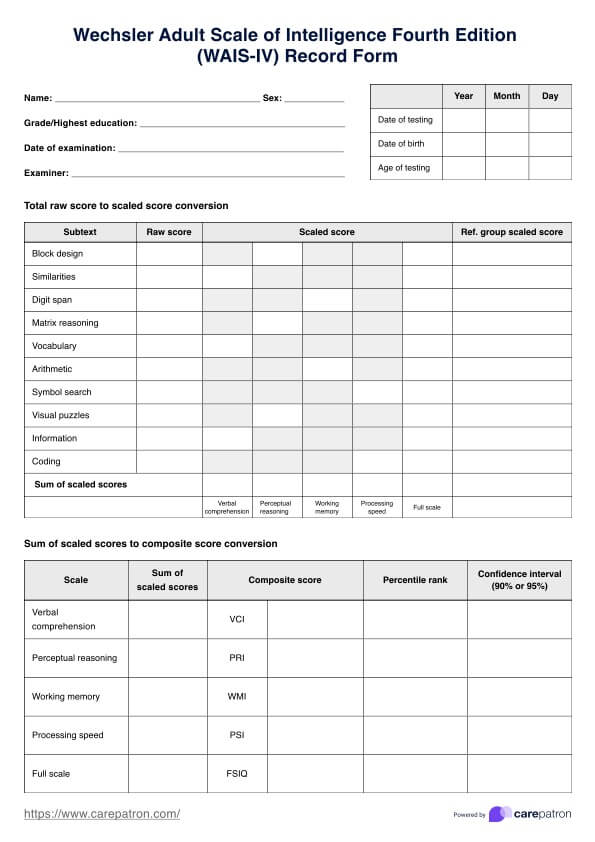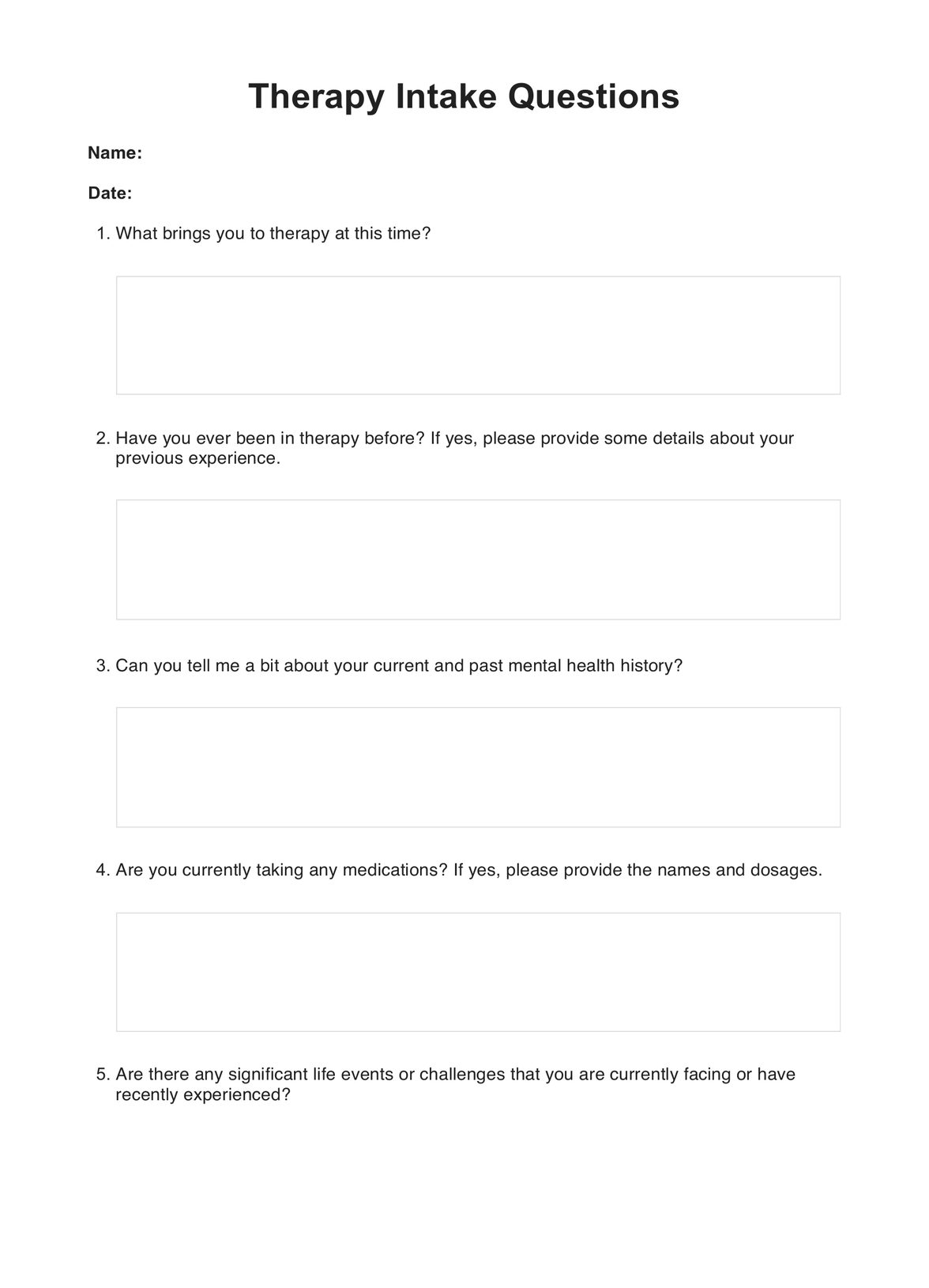Empathy Test
Discover your capacity for empathy with our comprehensive empathy test, which measures your ability to understand and share your true emotions for the feelings of others.


What is an empathy test?
An empathy test serves as an organized and structured evaluation designed to gauge an individual's capacity for understanding, sharing, and responding to the emotions and perspectives of others. These assessments typically employ a range of questions or scenarios that delve into various dimensions of empathy, including cognitive empathy, emotional empathy, and compassionate empathy.
Cognitive empathy, for instance, involves comprehending and appreciating another person's point of view. In contrast, emotional empathy pertains to the person whose capacity to share someone else's emotions and resonate with the emotions experienced by others. Compassionate empathy goes further, assessing an individual's inclination to express concern and feelings for others in times of need.
The questions within an empathy test cover diverse aspects, spanning interpersonal relationships, reactions to practical jokes, preferences regarding animals, and the aptitude to maintain emotional detachment in specific situations. The test aims to provide a nuanced understanding of an individual's empathetic capabilities by exploring these facets.
Additionally, empathy tests often consider factors such as verbal humor, the ability to see one's problems and other people from another person's viewpoint, emotions, and feelings, step into someone else's shoes, and respond to day-to-day life scenarios. The Toronto Empathy Questionnaire and the empathy spectrum further contribute to the comprehensive evaluation, offering insights into specific empathetic categories.
An empathy test is valuable for assessing and enhancing an individual's emotional intelligence and interpersonal communication skills. By offering a detailed examination of empathy levels across various dimensions, these tests contribute to personal growth and provide actionable insights for individuals seeking to develop and strengthen their capacity to connect with and understand the emotions of those around them.
Empathy Test Template
Empathy Test Example
Why is empathy important?
Firstly, empathy serves as a crucial tool for understanding individual differences. In mental health, the ability to empathize becomes pivotal in identifying and addressing challenges such as anxiety, depression, and personality disorders. Empathy plays a vital role in effective communication, conflict resolution, and emotional support in social relationships.
Its impact extends to professional settings, where empathy is essential for effective leadership, teamwork, and exemplary customer service.
Secondly, empathy is a potent predictor of behavior. Individuals with higher empathy scores are more likely to engage in prosocial actions, including helping others, volunteering, and participating in charitable activities.
Conversely, lower empathy scores may be associated with increased aggression and hostility. Moreover, empathy significantly influences decision-making processes, particularly in situations involving ethical considerations or the well-being of others.
Beyond individual interactions, empathy has far-reaching implications for research and development. Researchers use empathy as a lens to explore this trait's neurological and psychological underpinnings, study its development in children and adolescents, and assess its malleability in response to environmental and social factors. Empathy becomes a focal point for developing interventions aimed at enhancing empathetic capabilities.
Furthermore, empathy tests contribute to self-awareness. By providing individuals with insights into their empathetic strengths and areas for improvement, these tests become catalysts for personal growth and enhancing meaningful relationships.
Finally, promoting social change is a compelling outcome of empathy. By raising awareness about the importance of understanding and sharing the feelings of others, empathy contributes to building a more compassionate and understanding society.
This societal shift has the potential to foster positive impacts at the individual, community, and global levels, emphasizing the transformative power of empathy in creating a more harmonious and interconnected world.
The difference between empathy and kindness
While often used interchangeably, empathy and kindness are distinct concepts with subtle yet crucial differences. Empathy is the ability to understand and share the feelings of others, putting yourself in their shoes and feeling their emotional state.
It's a cognitive process that involves perspective-taking and recognizing the emotional experience of another person's viewpoint. Conversely, kindness is an action, a behavior motivated by compassion and a desire to alleviate suffering. It can manifest through acts of service, generosity, and support, offering tangible assistance to those in need.
The key difference lies in the focus: empathy is inward-facing, focusing on understanding and feeling another's emotions, while kindness is outward-facing, translating that understanding into concrete actions that benefit others.
Imagine witnessing someone crying: empathy allows you to feel their sadness and understand its source, while kindness compels you to offer a comforting hug or words of encouragement. Both qualities are essential for fostering connection, building strong relationships, and creating a more compassionate world.
Empathy provides the emotional intelligence to understand needs and people's feelings of suffering. At the same time, kindness translates that understanding into action that alleviates suffering and creates positive change for the most suffering.
Carepatron's Empathy Test: Basic information
Carepatron's Empathy Test is fundamental for gauging and understanding an individual's empathetic capacities. This test is designed to provide basic information about one's ability to comprehend and share the feelings and perspectives of others. As a part of Carepatron's suite of mental health assessment resources, the Empathy Test contributes to a comprehensive approach to emotional well-being.
Structured with a user-friendly interface, Carepatron's Empathy Test aims to offer individuals insights into their empathetic strengths and potential areas for improvement. This basic information fosters self-awareness and personal growth in interpersonal relationships and emotional intelligence.
The test covers essential dimensions of empathy, including cognitive, emotional, and compassionate empathy. By providing individuals with a clear understanding of their empathetic responses, the Carepatron Empathy Test becomes a valuable resource for those looking to enhance their interpersonal empathic people skills and build more meaningful connections with others.
As an integral component of Carepatron's commitment to mental health care, the Empathy Test contributes to the platform's mission of providing accessible and user-friendly tools for individuals, caregivers, and healthcare professionals. It aligns with the broader goal of promoting holistic well-being and fostering a compassionate and supportive community.
Reliability of empathy testing
The reliability of empathy testing is a subject under ongoing research and debate. While these tests provide valuable insights into individual differences in empathy, considerations about their reliability and validity persist.
Most empathy tests demonstrate good internal consistency and moderate to good test-retest and inter-rater reliability. They show moderate correlations with other measures of empathy, emotional intelligence, and prosocial behavior, indicating convergent validity and effectively differentiating between individuals with varying empathy levels, demonstrating discriminant validity.
However, challenges include the self-report bias inherent in many tests, potential limitations in capturing the multidimensional nature of empathy, and cultural variations impacting the generalizability of results. Recognizing these limitations is crucial.
Continuous research and development are needed to enhance the reliability and validity of empathy tests, particularly in areas such as criterion validity and cultural sensitivity. Combining empathy test results with other assessments and observational data can contribute to a more comprehensive understanding of an individual's empathy levels, promoting a holistic approach to measurement.
Next steps: how to interpret the results
Most empathy tests assess various aspects of empathy, often focusing on the following:
- Cognitive empathy: The ability to understand and recognize the emotions of others, including their facial expressions, tone of voice, and body language.
- Affective empathy: The ability to share the emotions of others, feeling their sadness, joy, anger, or other emotions. This measures how emotionally involved one is.
- Compassionate empathy: The ability to feel concern for others who are sad and suffering and a desire to work to help alleviate their distress consciously.
- Moral empathy: The ability to understand and respond to the moral implications of situations, taking into account the needs and feelings of others.
Interpreting scores
Empathy test scores are reported differently using statistical analysis, depending on the specific test. They may be presented as:
- Raw scores: Numerical values indicating the number of correct or endorsed items.
- Standardized scores: Z-scores or T-scores that compare your score to the average score of a reference group.
- Percentile scores: Indicate the percentage of individuals scoring below your score.
- Subscale scores: Provide specific insights into different aspects of empathy measured by the test.
Higher scores generally indicate a more substantial level of empathy, while lower scores may suggest weaker empathy skills. However, it's important to remember that empathy is a complex concept with various nuances. Scores should not be interpreted as definitive judgments or labels.
Here are some tips for interpreting your empathy test results
- Compare your scores to the reference group: This helps you understand how your empathy levels compare.
- Focus on specific subscale scores: These provide detailed information about your strengths and weaknesses in different aspects of empathy.
- Consider the limitations of the test: Be aware of potential biases and cultural differences that may influence your scores.
- Use results as a starting point for self-reflection: Consider how your empathy levels impact your relationships and interactions.
- Seek further information or professional guidance if needed: If you have concerns about your empathy levels or want to improve them, consult a therapist or other mental health professional.
Commonly asked questions
Assessments measure your ability to understand other people's emotions and feelings and share others' feelings.
Different aspects can be used to measure empathy, including understanding, affective empathy, sharing, compassion, and moral judgment.
Moderate to sound, but still needs improvement. Consider self-report bias, cultural differences, and limited scope.


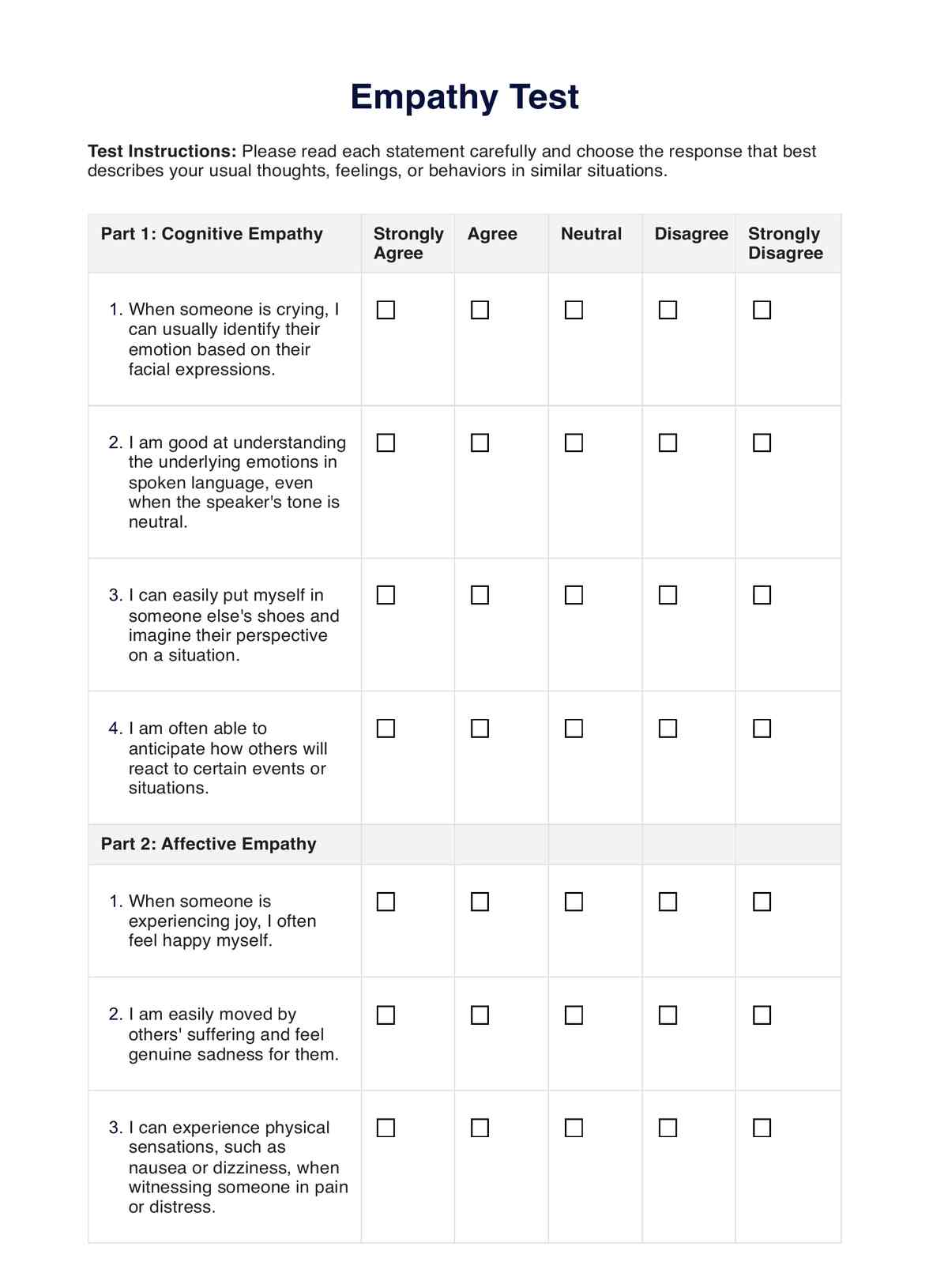
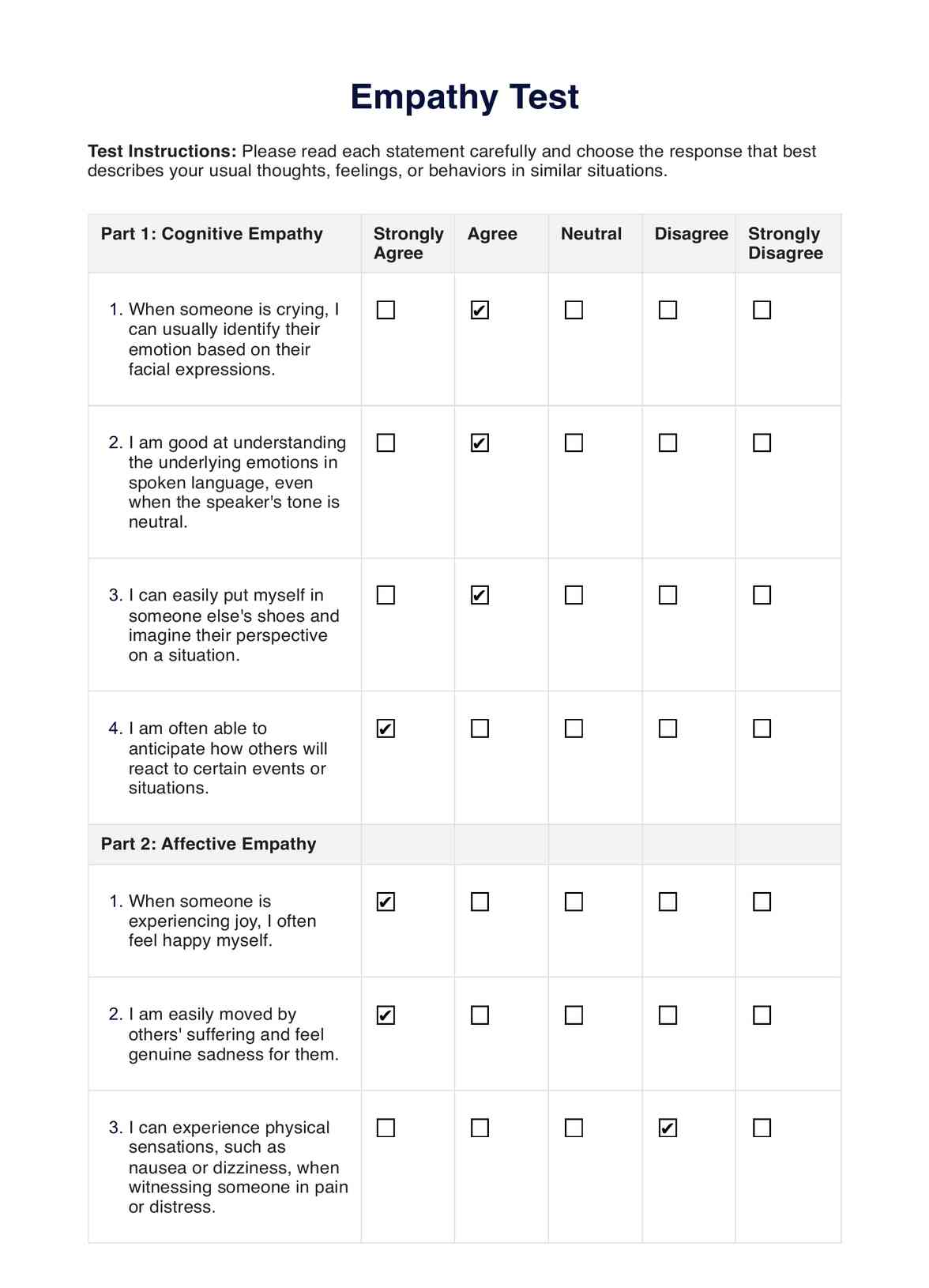

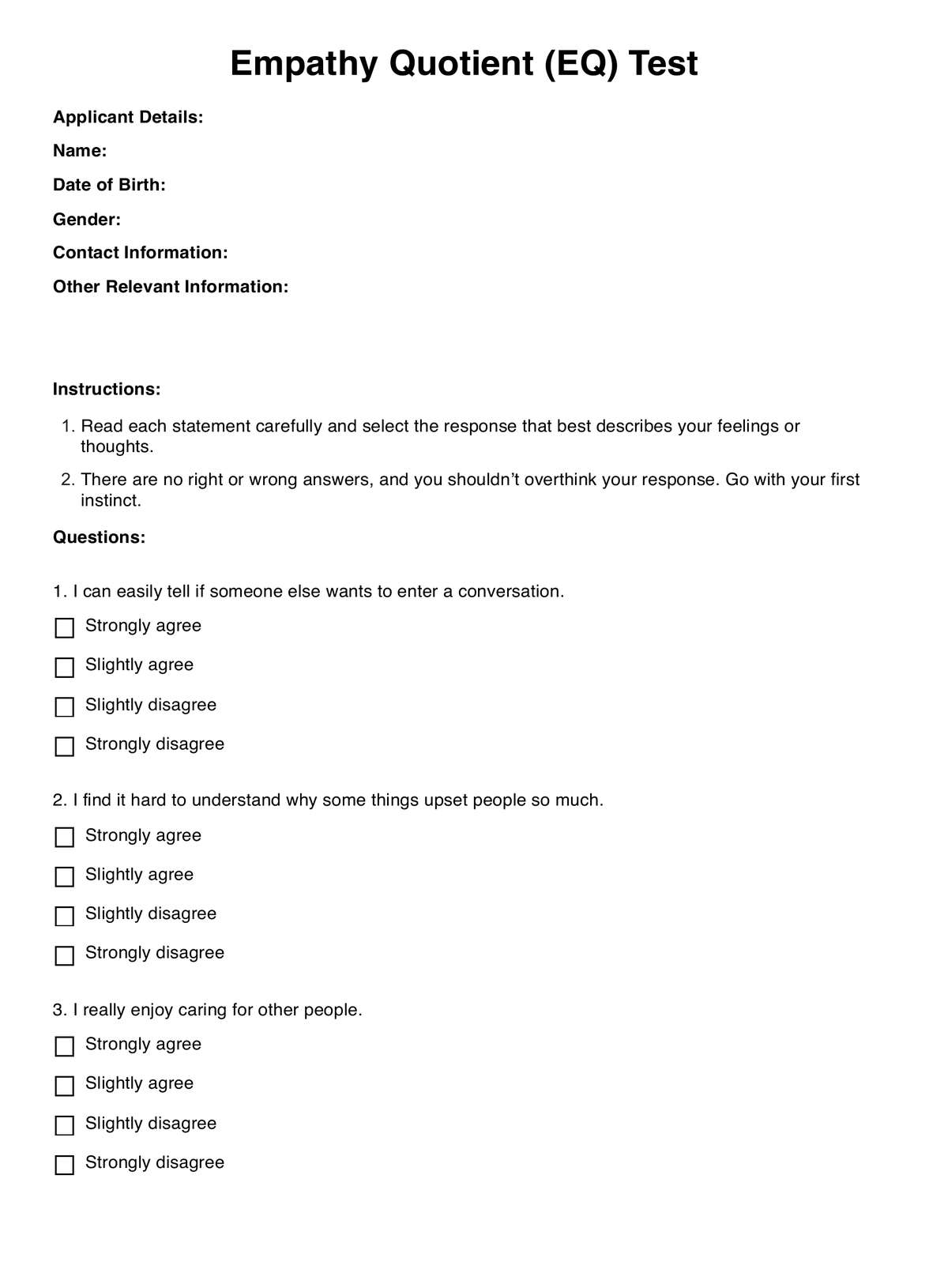




















-template.jpg)














































































